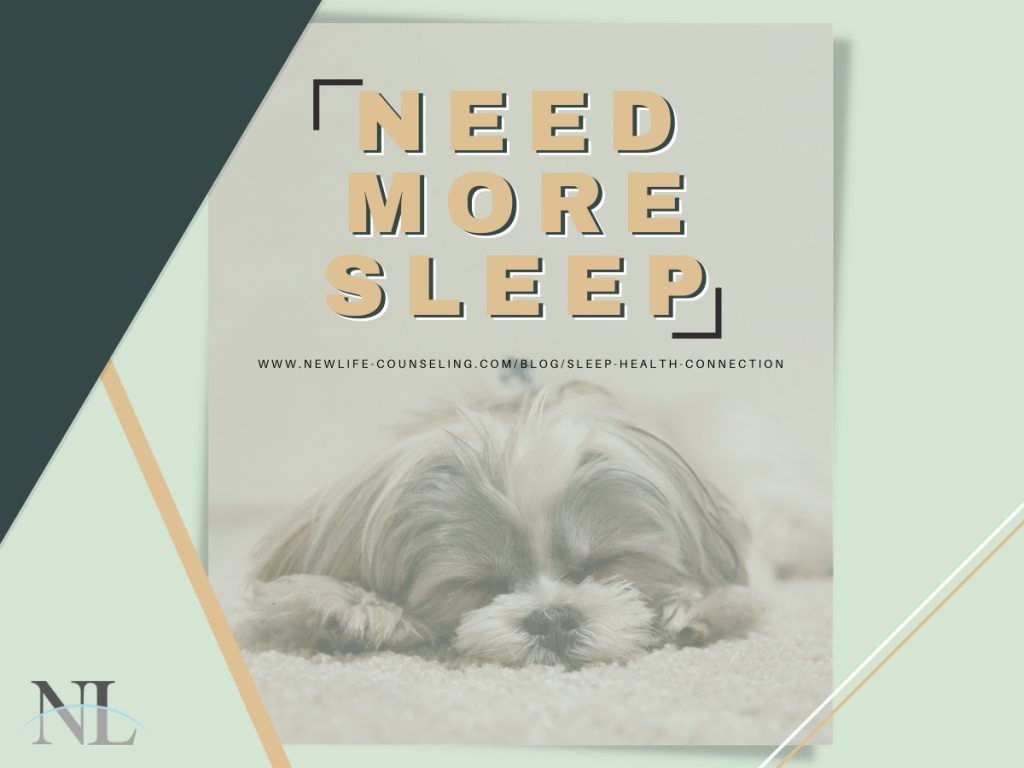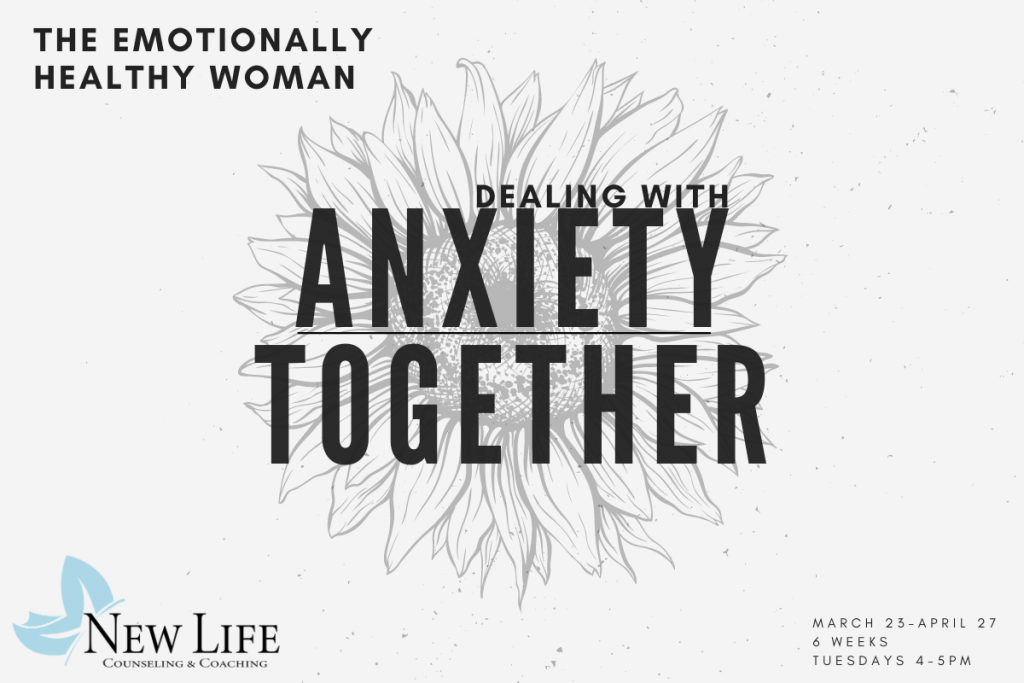The Sleep Health Connection: Self-Care Pt 1
Good sleep is vital to your mental, emotional, and physical well-being. Keep reading for 5 tips to improve your sleep and mental health in part 1 of our self-care series.

Self-care is described as being mindful of your own limits and needs so you can ensure your own physical, emotional, and mental well-being. In short, taking time to take care of yourself physically, spiritually, and emotionally is all part of self-care. Nope, I am not talking about bubble baths and drinking more wine. In fact- can we all agree that using methods of escape is not actually self-care? Doing the things that are good for you (ie self-care), don’t always feel wonderful in the moment.
There is so much confusion these days when people talk about self-care. It has become a hype word that at its best has helped many, but at its worst is incredibly toxic. To help alleviate this confusion we are doing a 4-part blog series about various self-care topics.
How is sleep vital to your self-care?
Its long been understood that a bad night’s sleep can affect mood in the short term- that’s why we say, “woke up on the wrong side of the bed.” There is a lot of truth to this. Doctors traditionally believe that sleep problems are symptoms of depression and anxiety, but ongoing research shows us that it is a bidirectional relationship. This means that while mental health disorders make it harder to sleep well, poor sleep is a contributing factor to the start and worsening of mental health problems. Sleeping problems are both a cause and consequence of mental health problems.
According to the CDC, between 30-44% the US population doesn’t get enough sleep on a regular basis! The American Sleep Association says 30% of Americans experience short-term insomnia and 10% of Americans have long-lasting insomnia. Adults who chronically get less than 7 hours per night are more likely to report heart disease, stroke, asthma, COPD, obesity, depression, kidney disease, and diabetes than those getting more than 7 hours per night. Poor sleep is also a contributing factor in disorders like anxiety, bipolar disorder, ADHD, and schizophrenia.
The Sleep Foundation explains the association between mental health and sleep like this: 1
“Brain activity fluctuates during sleep, increasing and decreasing during different sleep stages that make up the sleep cycle. Each stage plays a role in brain health, allowing activity in different parts of the brain to ramp up or down and enabling better thinking, learning, and memory. Sufficient sleep, especially REM sleep, facilitates the brain’s processing of emotional information. During sleep, the brain works to evaluate and remember thoughts and memories, and it appears that a lack of sleep is especially harmful to the consolidation of positive emotional content. This can influence mood and emotional reactivity and is tied to mental health disorders and their severity, including the risk of suicidal ideas or behaviors.”
All of this means that in order to take care of your mental, emotional, and physical well-being (self-care), you NEED to be getting good sleep! While not an exhaustive list, here are 5 tips to help you get better sleep.
1- Good Sleep Hygiene & Blue Light
There are so many factors to having good sleep hygiene (including some of the items in this list), but in general it is all about putting yourself in the best position to sleep well each and every night. Things like schedule, routine, daily habits, and environment all play into good sleep hygiene. 2 For more information check out the sleep foundation.
Right now, I want to highlight how blue light can affect mood and sleep. For people with seasonal affective disorder and even ADHD, blue light therapy can actually be a mood booster and a highly effective treatment. This is because blue light (and green to a lesser degree) can affect mood, body temperature, alertness/attention, waking EEG, and cognitive performance. 3
Most commonly talked about is that blue light directly suppresses melatonin production which alters a person’s circadian rhythm. Sounds like an easy fix, right? Simply avoid those screens at night and use blue light filtration. Well, it turns out that even the high efficiency light bulbs most people use emit strong levels of blue and green light. So, researchers recommend using dim red lights at night, avoid looking at any screens 2-3 hours before bed, wear glasses that filter the blue/green wavelengths, and exposing yourself to lots of bright light during the day are all great ways to help your sleep hygiene. 4
2- Routine
That brings us into our next tip: keeping a healthy and regular routine. Circadian rhythm is a fancy word for your sleep-wake cycle. If yours is a bit out of whack you can give it a jump start by establishing a routine. The sleep foundation recommends sticking to the same bed and wake time every single day as well as beginning your nightly routine 30 min to 2 hours before your bedtime. 5 Doing so consistently will retrain your brain to feel tired at bedtime. For this to work you must follow the routine even on weekends. They recommend making these adjustments slowly over a series of days starting with the wake-up time.
Beyond sleep functions, routines are also an important part of maintaining good mental health and dealing with anxiety. Our mind craves patterns and structure; having these routines actually reduces overall stress.
3- Therapy and journaling
Therapy is a proven, drug free method for helping a person with long term sleep issues like insomnia. Cognitive behavior therapy (talk therapy) helps you identify and replace behaviors and thoughts that can cause or worsen sleep problems. It helps you treat and possibly overcome any underlying causes of your sleep problems. A therapist may have you keep a sleep journal, thought journal, work on sleep hygiene, relaxation training and more. This approach has been widely tested and shows that on average of 70% of people obtain lasting benefits from CBT treatment. 6
You can check out more about journaling techniques on our blog.
4- Healthy Diet
Many chemicals, amino acids, enzymes, nutrients, and hormones all play a role in a healthy sleep cycle. 7 Eating a healthy, balanced diet can actually help you sleep better and improve mood. If you are still struggling with getting enough Zzz’s you can try adding a few of these foods into your diet.
- Almonds- they contain high doses of melatonin as well as high levels of magnesium and calcium.
- Milk- contains tryptophan, calcium, vitamin D, and melatonin.
- Tart cherries- research shows a positive correlation between improved sleep and cherry consumption.
- Kiwi- A small study showed eating 2 kiwis 1 hour before bed for 4 weeks actually improved sleep all around!
- Lettuce and lettuce seed oil- studies on mice showed an increase in sleep duration and decrease in the time it took to fall asleep.
In addition to what you eat, we must mention that smoking, alcohol consumption, and stimulants late in the day are all linked to poor sleep.
5- Exercise
Research shows that moderate aerobic exercise increases the amount of slow wave sleep (deep sleep) you get. Deep sleep is important because it gives your brain and body more time to rejuvenate. In recent years researchers have linked higher activity levels with better heart rate variability (HRV). HRV is the variance in time between the beats of your heart and is a measure of your autonomic nervous system. 8 Generally, high HRV is linked with a healthy heart and low HRV is associated with an increased risk of death and cardiovascular disease, as well as worsening depression or anxiety. So- do your heart and your mental health a favor by participating in at least 10 minutes of moderate activity per day.
As always, our mission here at New Life is to provide you with the tools necessary to thrive and succeed in your life. You can’t do that if you are stressed out and trying to pour from an empty cup. Come back over the next few months and check out all the resources as we dive into this topic of self-care. (read part 2 here: Coping with Stress)
Also, this month is World Sleep Week (March 7-13th,2021) and we will be bringing you more tips on calming a racing mind, especially when it is keeping you from getting enough sleep!
Finally, keep practicing this self-care stuff, keep tuning in, and reach out if you need help with any of it.

Sources:
1- https://www.sleepfoundation.org/mental-health
2- https://www.sleepfoundation.org/sleep-hygiene
3- Milosavljevic N. How Does Light Regulate Mood and Behavioral State? Clocks & Sleep. 2019; 1(3):319-331. https://doi.org/10.3390/clockssleep1030027
4- https://www.health.harvard.edu/staying-healthy/blue-light-has-a-dark-side
5- https://www.sleepfoundation.org/sleep-hygiene/how-to-reset-your-sleep-routine
6- https://tinyurl.com/ucfhwrvx
7- https://www.medicalnewstoday.com/articles/324295
8- https://www.whoop.com/thelocker/heart-rate-variability-hrv/

